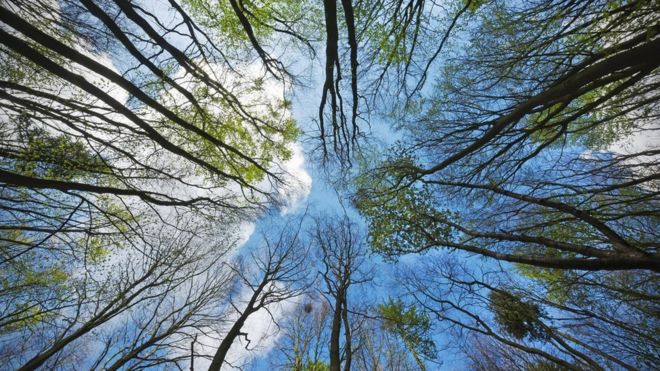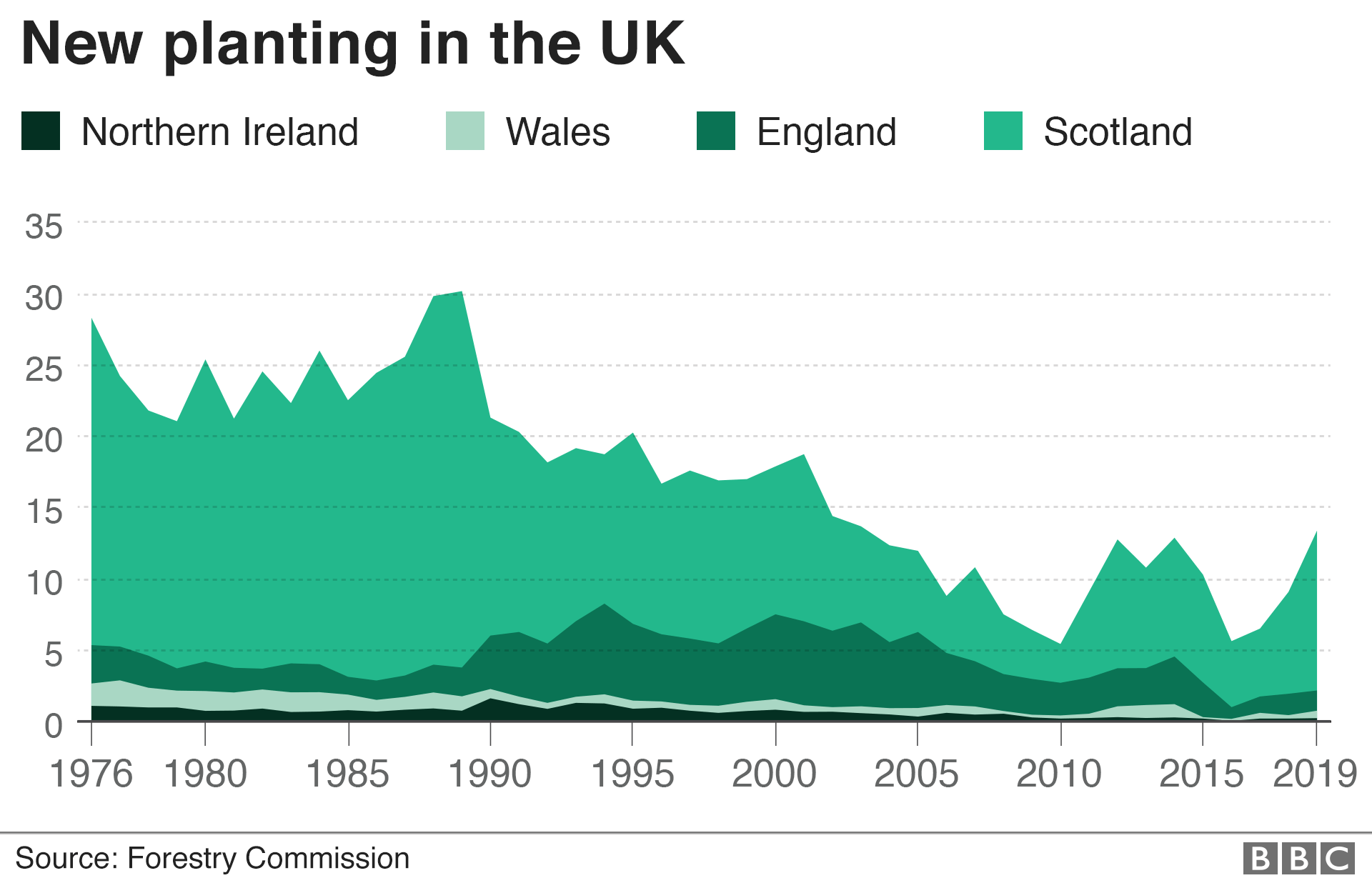 JEFF OVERS
JEFF OVERS
Mass tree planting in the UK could harm the environment if not planned properly, a report warns.
Badly-planned trees would increase greenhouse gas emissions, say the government’s advisers on the economic value of the natural environment.
The report comes from the Natural Capital Committee (NCC), which says planting trees into peat bogs would prove a serious mistake.
Peat locks up vast quantities of carbon - but trees dry out peat.
This can release more greenhouse gases than the trees absorb.
One NCC member, Prof Ian Bateman from the University of Exeter, said: “The mantra has to be ‘the right tree in the right place’.“
“We would be crazy to undertake the massive scale of planting being considered if we did not also consider the wider effects upon the environment including impacts on wildlife, benefits in terms of reducing flood risks and effects on water quality, improvements to recreation and so on.”
Right trees in right places
The report adds that carpeting upland pastures with trees would reduce the UK’s ability to produce meat – which may lead to increasing imports from places that produce beef by felling rainforests.
It also makes a similar point on industry. There’s no point closing dirty UK factories, the authors say, if we’re then going to import goods from places with worse emissions.

The authors note that huge publicity has been given to the UK’s plans for planting 11 million trees to lock up carbon emissions, but they warn that conserving carbon in soils is equally or more important.
The report points out that the Office for National Statistics (ONS) estimates that in 2007 UK soils contained approximately 4,019 million tonnes of carbon (MtC), that’s 94.2% of the total stock of biological carbon - excluding fossil fuel carbon.
They say soil degradation through erosion, intensive farming and development creates losses estimated at between £0.9 –1.4bn per year for England and Wales alone.
Soils underpin everything
Prof Kathy Willis from Oxford University and an NCC member, told BBC News: “We love looking at trees – we get all these positive emotions, smells and sounds – but most of us don't look at soil that actually underpins everything.”
The NCC calls for much better monitoring of soils. And it says that farming on lowland peat such as the rich fields of East Anglia should be halted if soil there continues to be lost.
This recommendation may be strongly resisted by farmers, although some of them say they’re addressing the problem by using “cover crops” to bind the soil together while cash crops are being planted.
The Country Land and Business Association have been approached to comment.
The NCC notes previous reports projecting a reduction in the consumption of amount of red meat and dairy produce by at least 20% per person and reducing food waste by 20%.
This implies around a 10% reduction in cattle and sheep numbers by 2050, compared with 2017 levels.
The report outlines the scale of the challenge for measures taken to tackle climate change through land use policies in the UK.
It says: “These figures make it clear that – far from being an option for major offsetting of emissions from other sectors – the measures will not even mitigate the emissions of the agriculture, land use and peatlands sectors."
Follow Roger on Twitter.

No comments:
Post a Comment